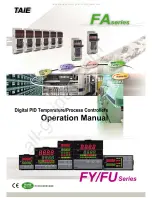
10
Installation and Service Guide
Introduction
Before you service the E-35A
Before you service the E-35A, it is strongly recommended that you make sure that you have the required tools (see
on page 10) and carefully review all precautions (see
Also, keep in mind that the most common cause of a hardware problem is a faulty or loose connection. Before you
replace an expensive component, check internal and external connections (see
Tools you will need
To install or service the E-35A, you will need the following tools and parts:
•
ESD wrist grounding strap and antistatic mat
•
Flathead screwdriver
•
#0, #1, and #2 Phillips head screwdrivers
When servicing the Fiery QuickTouch, use a screwdriver with a magnetic tip.
•
Needlenose pliers
•
E-35A documentation, including the customer media pack and any related service bulletins
Precautions
This section includes information about how to safely operate and service the E-35A and how to avoid damage to
components.
Report shipping damage
If there is evidence of shipping damage, save the shipping boxes and damaged parts. Call the shipper immediately to
file a claim and notify your authorized service/support center.
Do not change an existing network
The E-35A is probably connected to an existing Local Area Network (LAN) based on Ethernet hardware. The network
is the link between the customer’s computer, existing laser printers, and other prepress equipment. Never disturb the
LAN by breaking or making a network connection, altering termination, installing or removing networking hardware
or software, or shutting down networked devices without the knowledge and express permission of the site
administrator.
Do not assign an IP address to the E-35A
Only the site administrator should assign an IP address to a network device, including the E-35A. If you enter an
incorrect IP address for the E-35A, errors may occur on connected devices.
Important:
Avoid touching magnetic tools to storage media such as hard disk drives. Contact between
magnetic tools and magnetic storage media may result in data corruption.











































